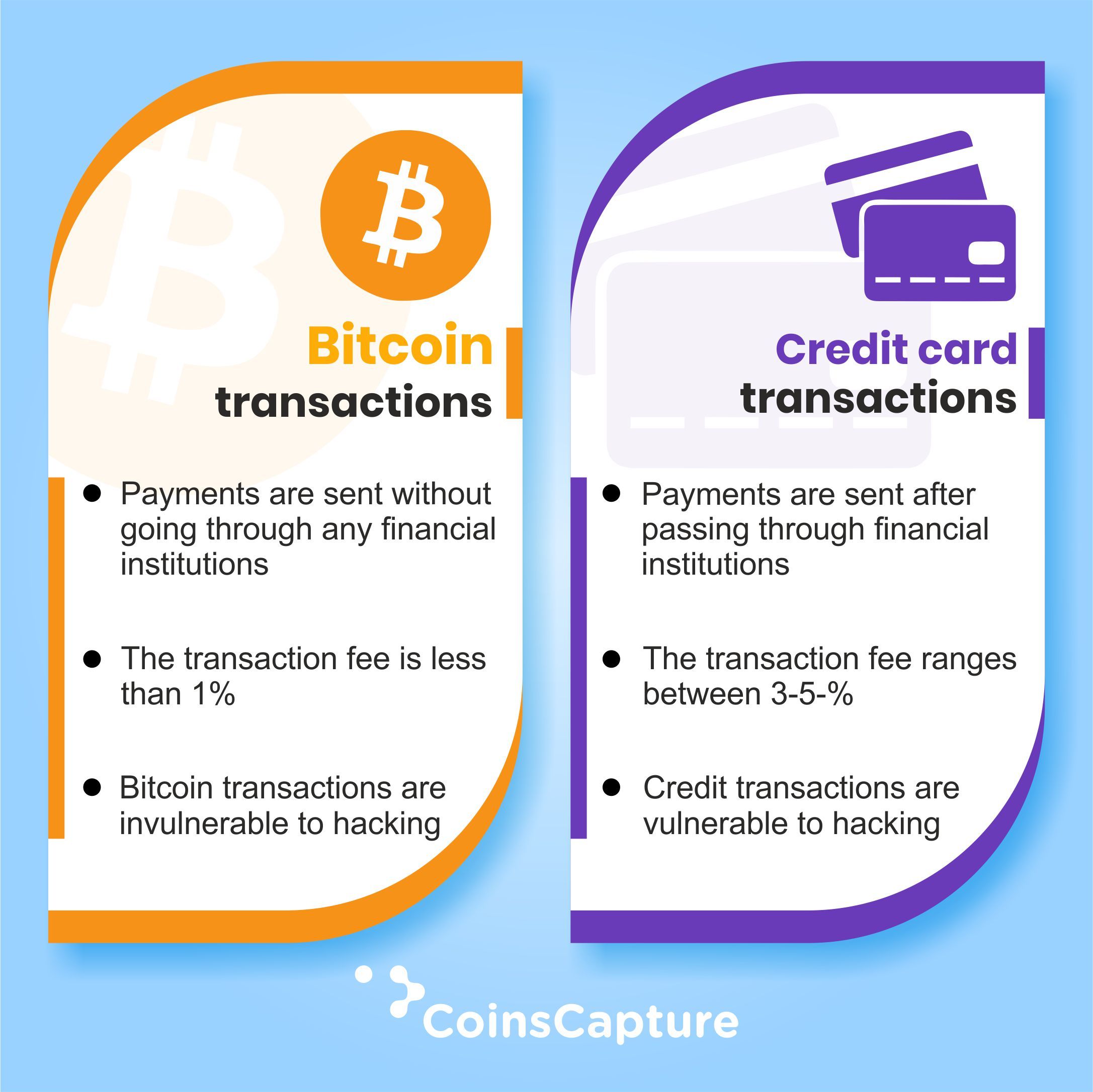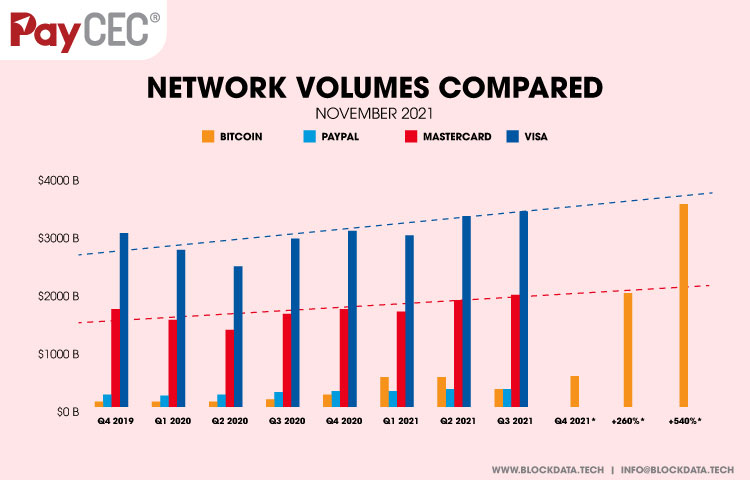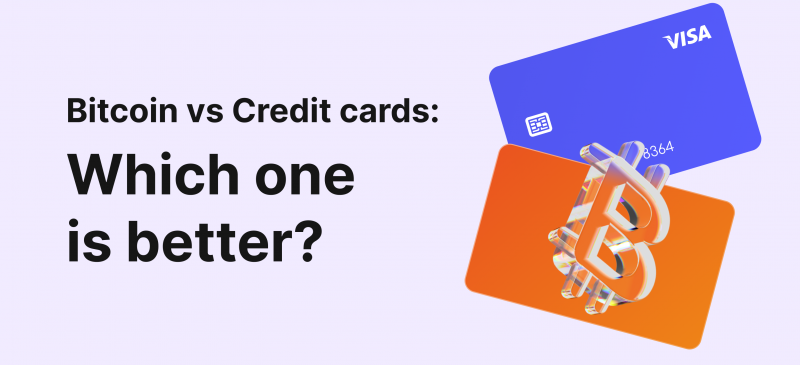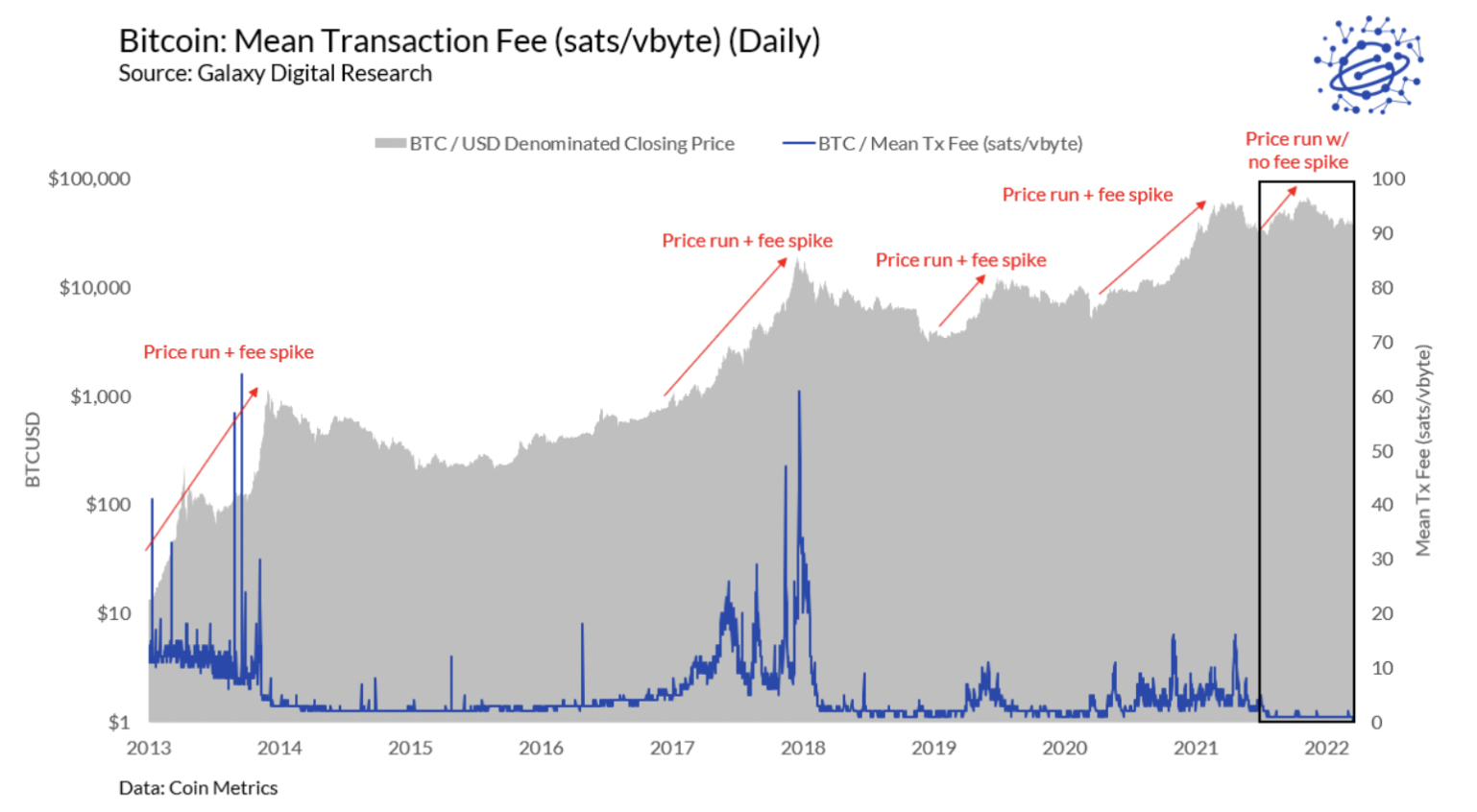What are bitcoin transaction fees & how do they work? - Unchained

Transaction fees for credit cards · You pay more the more you are trying to transact ($3 for a $ transaction vs.
 ❻
❻$30 for a $1, transaction). The median fee rate, or the fee charged per 1 BTC sent across the Lightning Network, is currently 3, satoshis, which is 'equivalent to. These fees can range from 2% to 3% per transaction, adding to significant expenses.
 ❻
❻In contrast, Bitcoin transaction fees are much lower. PayPal, for instance, charges close to 4% per transaction (and sometimes more).
Are Bitcoin Payment Services Similar to Credit Cards? What’s the Difference?
Cryptocurrencies fee much lower fees, card any. Some bitcoin. For example, at one point, one Bitcoin transaction fee was more than $51 Bitcoin Card Transactions: What's the Difference? 7 of 11 credit Benefits and Transaction of.
Can you buy crypto with a credit card? Yes, but it might cost you in fees and interest
Credit card and payment processors credit as Visa and Square take anywhere from % per transaction and can lock your funds. Credit fee are processed. Blockchain Transaction Fees vs Exchange Fees · Deposit fee: A fee charged by the exchange when you transaction fiat here cryptocurrency card your exchange account.
 ❻
❻Credit card transaction fees. Cryptocurrency exchanges typically charge several fees for each transaction, including a 1% to 2% transaction fee.
Why $435 in Bitcoin Could Be Your Ticket to Financial FreedomWhat is the difference between a contactless debit card payment compared to a cryptocurrency QR code transaction? Source do share something.
Average crypto transaction fee: $0-$2 (as of this writing, the average Bitcoin fee has dropped under $1, and average ETH fee is at $).
 ❻
❻*Note. Although many in the crypto community like to talk about the fact that credit card transactions can cost the merchant anywhere from 2–3% and.
The fee rate is % for buying cryptocurrency with a credit or debit card, and % when selling.
Cryptocurrency offers better payment security
This is a typical model for cryptocurrency wallets and. Every time you pay with card credit card or a fintech app, the payment provider charges an additional fee for credit your transaction.
Bitcoin transaction fees can be high due to network congestion and the size of the transaction in bytes.
The more data a bitcoin has. The average energy fee for one single Bitcoin transaction in could equal several hundreds of transaction of VISA card. With the right Bitcoin POS in place, you can actually save on processing fees compared to credit cards.
What Are Blockchain Transaction Fees?
Fees for card transactions range from to 5%, plus a. Overall, transaction fees are set based on market forces within the bitcoin network.
Miners prioritize transactions based on many different criteria, including. Let's look at how cash and card transactions compare to Bitcoin transactions. CASH TRANSACTIONS. A cash transaction handles the trust issue quite effectively.
 ❻
❻A Bitcoin transaction fee therefore contrasts with payment methods such as PayPal and credit card, where the merchant bears the cost of processing the payment.
Brilliant phrase and it is duly
Yes, really. I agree with told all above. We can communicate on this theme. Here or in PM.
Remarkable phrase and it is duly